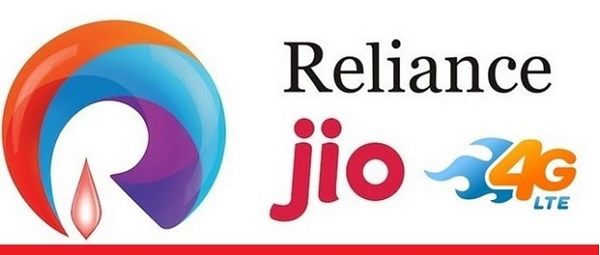
by admin | May 25, 2021 | Opinions
 By Taponeel Mukherjee,
By Taponeel Mukherjee,
News that Reliance Jio has raised 53.5 billion Japanese yen (approximately Rs 3,251 crore) in Samurai loans is proof that as the telecom sector in India evolves, not only is Reliance Jio pushing for changes on how businesses are run, but it is also innovating on the capital structure front. There are important takeaways for the infrastructure sector from this Samurai loan.
Tapping into Japanese investors provides infrastructure businesses in India with an opportunity to access a large pool of capital that is looking for returns in a low interest rate environment. While an Indo-Japan collaboration through Japanese technology transfers is extremely beneficial, capital transfers through Samurai loan-type transactions is an area that deserves equal attention.
Reliance Jio’s Samurai loan allows it to borrow in a relatively low interest rate currency such as the yen and eventually swap the yen back into rupees to fund investments at home. Even factoring in for hedging costs, such transactions allow companies to borrow cheaper than a similar loan in India. Most importantly, it opens up a large pool of capital in Japanese institutions and retail investors.
To get an idea of why Japanese investors, who have traditionally invested largely in Japanese government bonds and equities, might want to start looking at offshore markets such as India, one needs to understand the policy changes and macro-economic conditions in that country, especially over the last few years. “Abenomics”, extensive monetary easing by the Bank of Japan and extremely low interest rates have all contributed to the changing macro-dynamics.
The size of assets with Japanese investors is significant, with institutions such as Government Pension Investment Fund (GPIF) having a total of 162.6 trillion yen of assets under management in December 2017. This makes GPIF the single-largest pension fund manager in the world. In addition, there is a structural shift underway in organisations such as the GPIF through a series of reforms initiated in 2014 — a shift that has seen the investment focus move towards international equities, bonds and alternative assets.
It is important for India to attract a part of this reallocated capital not just from GPIF but other large Japanese financial institutions. The Reliance Jio deal has shown that there is healthy appetite amongst Japanese investors for Indian businesses that have robust models.
To further understand why Japanese investors would have an interest in Indian debt-like investments one needs to look at data at an individual level. According to the annual survey by the Central Council for Financial Services Information, a body administered by the Bank of Japan, 54.1 percent of Japanese household financial assets are held in savings and bank deposits, with only 8.9 percent held in stocks.
When one considers Japan’s ageing population, one realises that the demand for fixed coupon paying assets such as bank deposits will only increase in the country. So, even if the average household does allocate more towards equities than they currently do, the demand for fixed income assets will still remain high as the population ages further. A three-year term deposit earns anything between 1 and 10 basis points in Japan.
This combination of an ageing population and high demand for fixed income assets in a low interest rate country shows us why there is demand for high quality interest paying investments in Japan. The fact that the total size of the financial assets held by Japanese households stood at $16 trillion at the end of June 2017, as per Bank of Japan data, gives us an idea of both the conundrum facing Japanese policymakers and the opportunity for Indian infrastructure businesses. To put $16 trillion in perspective: It is approximately seven times India’s GDP.
While Japanese capital is available, it is also discerning. Hence companies need to create robust business models, stable cash flow profiles and corporate governance standards that will satisfy Japanese investors. Over the next two decades, as India looks to create world class infrastructure, structures such as Samurai loans will be needed. As the infrastructure sector gradually recovers, capital structure innovation through channelling Japanese capital into attractive investment opportunities in the years to come will be a must.
(Taponeel Mukherjee heads Development Tracks, an infrastructure advisory firm. Views expressed are personal. He can be contacted at taponeel.mukherjee@development-tracks.com or @Taponeel on Twitter)
—IANS

by admin | May 25, 2021 | Business Summit, Corporate, Corporate Buzz, Events, Marketing Basics, Markets, Technology
 Mumbai : Reliance Jio is committed to contribute and use Open Source technologies to better its consumer experience, the company’s Director and Board Member Akash Ambani said here on Friday.
Mumbai : Reliance Jio is committed to contribute and use Open Source technologies to better its consumer experience, the company’s Director and Board Member Akash Ambani said here on Friday.
“Open Source is very important for Jio – being both a contributor and utilising it for our business needs. Every day people when people use a LYF device, Jio Phone or Jio Application – their lives are enriched through the technologies enabled with Open source,” Ambani said during his inaugural speech at the India Digital Open Summit.
The summit is taking place at Reliance Corporate Park and Reliance Jio is a key partner.
“Our chairman (Mukesh Ambani) believes that India is on the path to be a technology innovation leader and a technology superpower, and Open Source community will be a driving force of this,” he said.
Saying that Artificial Intelligence (AI) is becoming a mainstream in all of our lives with recent activities, Ambani added: “In India, AR/VR (augmented reality/virtual reality) is still in the initial stages of adoption, but market will register a compounded annual growth rate of more than 50 percent in the next five years.”
—IANS

by admin | May 25, 2021 | Business, Large Enterprise
 New Delhi : Reliance Jio on Wednesday said it is committed to implementing the most efficient telecommunications network in India and passing on the benefits of technology to Indian customers, adding that implementation of the Bill & Keep regime by the Telecom Regulatory Authority of India (TRAI) will help in making services more affordable for Indian customers.
New Delhi : Reliance Jio on Wednesday said it is committed to implementing the most efficient telecommunications network in India and passing on the benefits of technology to Indian customers, adding that implementation of the Bill & Keep regime by the Telecom Regulatory Authority of India (TRAI) will help in making services more affordable for Indian customers.
“It should have been implemented in 2014 as envisaged in the 2011 Report submitted by TRAI to the Hon’ble Supreme Court and will be six years too late,” the Jio statement said.
Jio offers free voice services to all its customers backed by a superior technology and has helped make India the world’s largest mobile data consuming country within one year of commencement of services.
The TRAI on Tuesday slashed mobile termination charges to 6 paise from 14 paise effective from October 1, 2017. The regulator will phase out IUC regime from January 1, 2020.
The TRAI said: “Further, the cost of termination of calls will drastically come down over a period of two years and very small residual value, if any, can be absorbed by the TSPs in their tariff offerings. As a result, the Authority prescribes a Bill and Keep regime for the wireless to wireless calls effective from January 1, 2020.”
Jio further said: “Jio has always offered free voice services to its customers. There is no question of any advantage from the new IUC regulation to Jio as it has already passed on all the benefits to customers. We deny any benefits to Jio. At a time when the world is moving towards IP-based technologies, cost of voice has come down to a fraction of a paisa and the customers should enjoy this advantage.”
Jio added: “The Delhi High Court earlier today dismissed the petition of one of the incumbent operators while pronouncing that the appeal fails to show any violation of Section 11 (4) of the TRAI Act, 1997 (principles of transparency).
“It is appalling that the incumbent operators have still gone ahead and made untrue and baseless allegations against the process for determination of IUC or the regulator. The incumbent operators have a history of opposing all the IUC regulations over the last eight years, but have not been successful in thwarting passing of the benefits of lower IUC to customers.”
Jio said the high cost IUC regime “thus far has caused financial stress for the smaller and new operators.”
Earlier in the day, Reliance Communications welcomed the Indian telecom regulator’s decision to slash interconnection usage charges (IUC) to 6 paise.
“We welcome the reduction in IUC to 6 paise by TRAI. We also welcome the Bill & Keep model, to be effective from January 2020. The IUC cut has already been delayed by three years. With voice calling becoming free, TRAI’s move will provide a level playing field,” Reliance Communications said in a statement.
—IANS

by admin | May 25, 2021 | Markets, News, Technology
 New Delhi: (IANS) Reliance Jio has sought the industry watchdog’s intervention over the three main telecom operators — Airtel, Vodafone and Idea — refusing to allow porting of their subscribers to its own network, in an alleged disregard to licensing norms.
New Delhi: (IANS) Reliance Jio has sought the industry watchdog’s intervention over the three main telecom operators — Airtel, Vodafone and Idea — refusing to allow porting of their subscribers to its own network, in an alleged disregard to licensing norms.
“Reliance Jio Infocomm, vide letters dated September 2, 2016, sent individually to Bharti Airtel, Idea and Vodafone, who are the incumbent dominant operators, informing them that Reliance Jio would be commencing its services from September 5,” the company said in its letter.
“In spite of being under legal and contractual obligation to port the numbers after a valid request is made, the incumbent dominant operators have rejected all the requests made for porting between Sep 5 to Sep 12,” said the letter to the Telecom Regulatory Authority of India (TRAI).
The letter said against 201 total requests made to the three operators — to Airtel the most, followed by Idea and then Vodafone — 161 of them have violated the contractual obligations and eight were subject to wrong coding, among other issues.
None were successfully completed, it said, and elaborated upon the portability regulations.
“Please note that these rejections are in addition to the rejection of mobile number portability request of 4,919 corporate mobile numbers issued to employees and members of Reliance Industries Group by Bharti Airtel in August 2016,” it said.
“Reliance Jio sincerely requests that the TRAI take serious cognizance of this complaint and intervene by taking strict action against incumbent dominant operators under the relevant provisions of the mobile number portability regulations and the unified licence,” it said.
The letter comes just as the incumbent operators and Reliance Jio appeared to be in the process of settling their differences over providing enough points of inter-connect for calls from the latter’s network to go through to their own subscribers.

by admin | May 25, 2021 | Corporate, Corporate Buzz
 Mumbai, (IANS) In another step towards the commercial launch of Jio 4G services, expected later this year, Reliance Industries has unveiled an referral programme in which employees can offer the experience to 10 select friends.
Mumbai, (IANS) In another step towards the commercial launch of Jio 4G services, expected later this year, Reliance Industries has unveiled an referral programme in which employees can offer the experience to 10 select friends.
“We give you the opportunity to extend this digital life experience with 10 of your special friends by inviting them to an exclusive Jio preview offer powered by LYF smartphone,” a mail to the employees said.
“Simply with your invitation, your friends will be entitled to avail the below offer on the purchase of any LYF smartphone brought to you by Reliance Retail. Experience the Jio preview offer while the Jio network is getting tested on LYF Smartphone.”
The offer comes with 90 days of unlimited access to high-definition voice and video, high-speed data and SMS. This apart, it also comes with access to 10 Jio apps, including its chat, video in demand, music, news, cloud back-up and even one for personal security.
The LYF handsets are being sold at between Rs.5,490 and Rs.19,399.
The Jio SIM cards earlier were available only to Reliance employees, post its beta launch in December last year.
Morgan Stanley has forecast that led by local players notably LYF, India will overtake the US as the second-largest smartphone market next year. “Reliance Industries is our play on the rising tide. In near term, many players should benefit from 4G smartphone and network proliferation.”




